detail profile joseph mccarthy
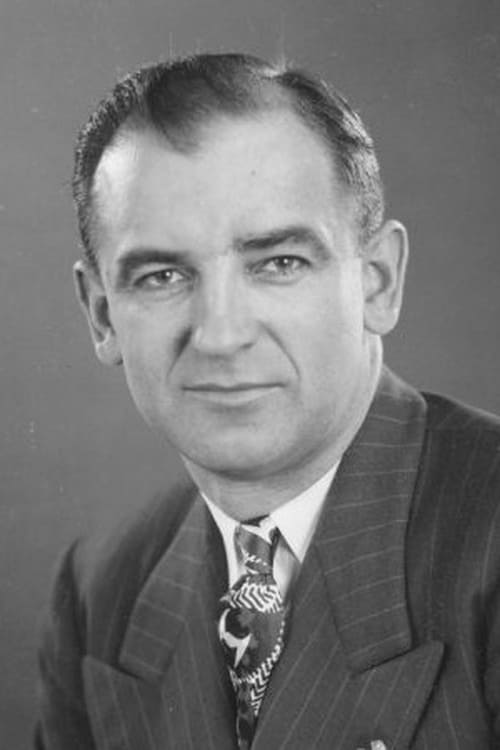
Joseph McCarthy
Joseph Raymond McCarthy
atau dikenal sebagai
Riwayat Hidup
Joseph Raymond McCarthy (November 14, 1908 – May 2, 1957) was an American politician who served as a Republican U.
S.
Senator from the state of Wisconsin from 1947 until his death at age 48 in 1957.
Beginning in 1950, McCarthy became the most visible public face of a period in the United States in which Cold War tensions fueled fears of widespread communist subversion.
He alleged that numerous communists and Soviet spies and sympathizers had infiltrated the United States federal government, universities, film industry, and elsewhere.
Ultimately he was censured by the Senate in 1954 for refusing to cooperate with and abusing members of the committee established to investigate whether or not he should be censured.
The term "McCarthyism", coined in 1950 in reference to McCarthy's practices, was soon applied to similar anti-communist activities.
Today the term is used more broadly to mean demagogic, reckless, and unsubstantiated accusations, as well as public attacks on the character or patriotism of political opponents.
Info Pribadi
Peran Yang Di Mainkan Joseph McCarthy
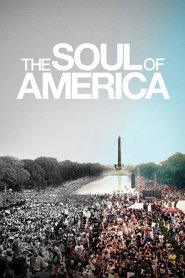 Writer journalist Pulitzer Prizewinning historian and...
Writer journalist Pulitzer Prizewinning historian and...The Soul of America 2020
Writer, journalist, Pulitzer Prize-winning historian and presidential biographer John Meacham offers his timely and invaluable insights into the country’s current political and historical moment by examining its past. Based on his 2018 bestseller of the same name.
 McCarthy chronicles the rise and fall...
McCarthy chronicles the rise and fall...McCarthy 2020
"McCarthy" chronicles the rise and fall of Joseph McCarthy, the Wisconsin senator who came to power after a stunning victory in an election no one thought he could win. Once in office, he declared that there was a vast conspiracy threatening America — emanating not from a rival superpower, but from within. Free of restraint or oversight, he conducted a crusade against those he accused of being enemies of the state, a chilling campaign marked by groundless accusations, bullying intimidation, grandiose showmanship and cruel victimization. With lawyer Roy Cohn at his side, he belittled critics, spinning a web of lies and distortions while spreading fear and confusion. After years in the headlines, he was brought down by his own excesses and overreach. But his name lives on linked to the modern-day witch hunt we call “McCarthyism.”
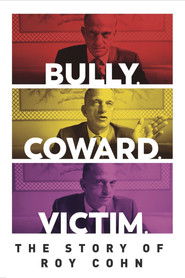 Legendary and controversial attorney Roy Cohn...
Legendary and controversial attorney Roy Cohn...Bully. Coward. Victim. The Story of Roy Cohn 2019
Legendary and controversial attorney Roy Cohn was a power broker in the rough and tumble world of New York City business and politics. Senator Joseph R. McCarthy’s top counsel during investigations into Communist activities in the 1950s, Cohn is also known for being Donald Trump’s former personal lawyer, fixer and mentor.
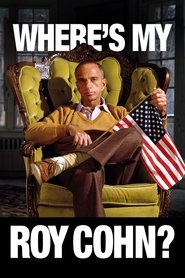 Roy Cohn personified the dark arts...
Roy Cohn personified the dark arts...Where's My Roy Cohn? 2019
Roy Cohn personified the dark arts of American politics, turning empty vessels into dangerous demagogues - from Joseph McCarthy to his final project, Donald J. Trump. This thriller-like exposé connects the dots, revealing how a deeply troubled master manipulator shaped our current American nightmare.
 Tehran Iran August 19 1953 A group of...
Tehran Iran August 19 1953 A group of...Coup 53 2019
Tehran, Iran, August 19, 1953. A group of Iranian conspirators who, with the approval of the deposed tyrant Mohammad Reza Pahlavi, have conspired with agents of the British MI6 and the US CIA, manage to put an end to the democratic government led by Mohammad Mosaddegh, a dramatic event that will begin the tragic era of coups d'état that, orchestrated by the CIA, will take place, over the following decades, in dozens of countries around the world.
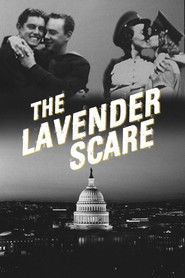 At the height of the Cold...
At the height of the Cold...The Lavender Scare 2019
At the height of the Cold War, President Eisenhower deems homosexuals to be security risks. A vicious witch hunt ensues, ruining thousands of American lives.
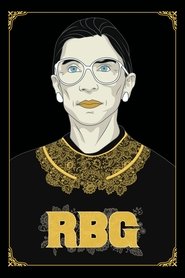 Justice Ruth Bader Ginsburg now 84 and...
Justice Ruth Bader Ginsburg now 84 and...RBG 2018
Justice Ruth Bader Ginsburg now 84, and still inspired by the lawyers who defended free speech during the Red Scare, Ginsburg refuses to relinquish her passionate duty, steadily fighting for equal rights for all citizens under the law. Through intimate interviews and unprecedented access to Ginsburg’s life outside the court, RBG tells the electric story of Ginsburg’s consuming love affairs with both the Constitution and her beloved husband Marty—and of a life’s work that led her to become an icon of justice in the highest court in the land.
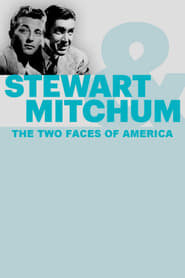 With his nave air his rangy...
With his nave air his rangy...Stewart & Mitchum: The Two Faces of America 2017
With his naïve air, his rangy and reassuring silhouette, James Stewart symbolizes success, someone who everybody wants to look like. Behind his legendary nonchalance, Robert Mitchum is the figure of the bad boy, the kind-hearted hooligan who anyone would like to have for accomplice. What is the legacy left by these two big myths of the Hollywood cinema and in which way they fed the American dream?
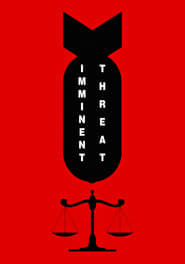 A look at the War on...
A look at the War on...Imminent Threat 2015
A look at the War on Terror and the threat it's causing to our civil liberties and political discourse. Academy Award nominee James Cromwell presents Janek Ambros' directorial debut. The feature doc tackles the War on Terror's impact on civil liberties and the strange coalition it's creating between the progressive left and libertarian right. The doc examines the NSA, drones, the war on journalism and other encroachments on civil liberties started by the Bush era and expanded by the Democratic establishment.
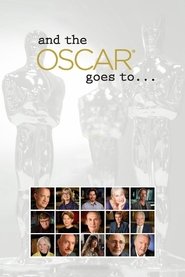 The story of the goldplated statuette...
The story of the goldplated statuette...And the Oscar Goes To... 2014
The story of the gold-plated statuette that became the film industry's most coveted prize, AND THE OSCAR GOES TO... traces the history of the Academy itself, which began in 1927 when Louis B. Mayer, then head of MGM, led other prominent members of the industry in forming this professional honorary organization. Two years later the Academy began bestowing awards, which were nicknamed "Oscar," and quickly came to represent the pinnacle of cinematic achievement.
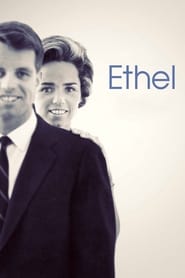 Filmmaker Rory Kennedy interviews her mother...
Filmmaker Rory Kennedy interviews her mother...Ethel 2012
Filmmaker Rory Kennedy interviews her mother, Ethel Kennedy, who discusses family, marriage and politics.
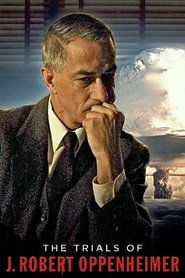 J Robert Oppenheimer was a national...
J Robert Oppenheimer was a national...The Trials of J. Robert Oppenheimer 2008
J. Robert Oppenheimer was a national hero, the brilliant scientist who during WWII led the scientific team that created the atomic bomb. But after the bomb brought the war to an end, in spite of his renown and his enormous achievement, America turned on him - humiliated and cast him aside. The question the film asks is, "Why?"
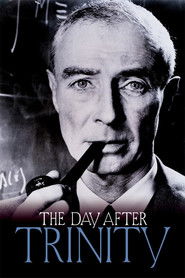 This essential Academy Awardnominated documentary offers...
This essential Academy Awardnominated documentary offers...The Day After Trinity 1981
This essential, Academy Award–nominated documentary offers an urgent warning from history about the dangers of nuclear warfare via the story of J. Robert Oppenheimer, the enigmatic physicist and all-around Renaissance man who led the Manhattan Project to develop the atomic bomb that America unleashed on Japan in the final days of World War II. Through extensive interviews and archival footage, THE DAY AFTER TRINITY traces Oppenheimer’s evolution, from architect of one of the most consequential endeavors of the twentieth century to an outspoken opponent of nuclear proliferation who came to deeply regret his role in ushering in the perils of the atomic age.
 Many times during his presidency Lyndon...
Many times during his presidency Lyndon...Hearts and Minds 1974
Many times during his presidency, Lyndon B. Johnson said that ultimate victory in the Vietnam War depended upon the U.S. military winning the "hearts and minds" of the Vietnamese people. Filmmaker Peter Davis uses Johnson's phrase in an ironic context in this anti-war documentary, filmed and released while the Vietnam War was still under way, juxtaposing interviews with military figures like U.S. Army Chief of Staff William C. Westmoreland with shocking scenes of violence and brutality.
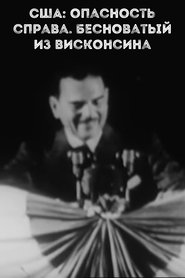 Professor Valentin Zorin political observer of...
Professor Valentin Zorin political observer of...USA: danger from the right. Demoniac from Wisconsin 1971
Professor Valentin Zorin, political observer of the USSR State Television and Radio Broadcasting, talks about Joseph McCarthy, an American politician, a senator from Wisconsin, who held an extremely anti-communist position, who advocated an intensification of the Cold War with the USSR. The name of McCarthy is associated with a reactionary trend in the political life of the United States of the early 1950s, dubbed "McCarthyism" and consisted in the persecution of people only suspected of sympathizing with communism and not committing any crimes.
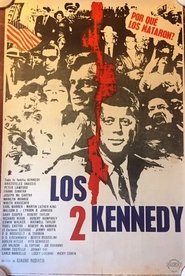 Life career and death of the...
Life career and death of the...The Two Kennedys 1969
Life, career and death of the two protagonists of American life sixties, John and Robert Kennedy, from the days of their ascent to the White House, the first as president, the second as a minister of justice, to the death.
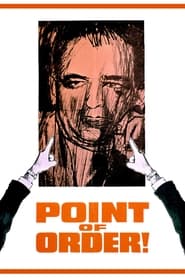 Point of Order is compiled from...
Point of Order is compiled from...Point of Order! 1964
Point of Order is compiled from TV footage of the 1954 Army-McCarthy hearings, in which the Army accused Senator McCarthy of improperly pressuring the Army for special privileges for Private David Schine, formerly of McCarthy's investigative staff. McCarthy accused the Army of holding Schine hostage to keep him from searching for Communists in the Army. These hearings resulted in McCarthy's eventual censure for conduct unbecoming a senator.
 The story of journalist Edward R...
The story of journalist Edward R...